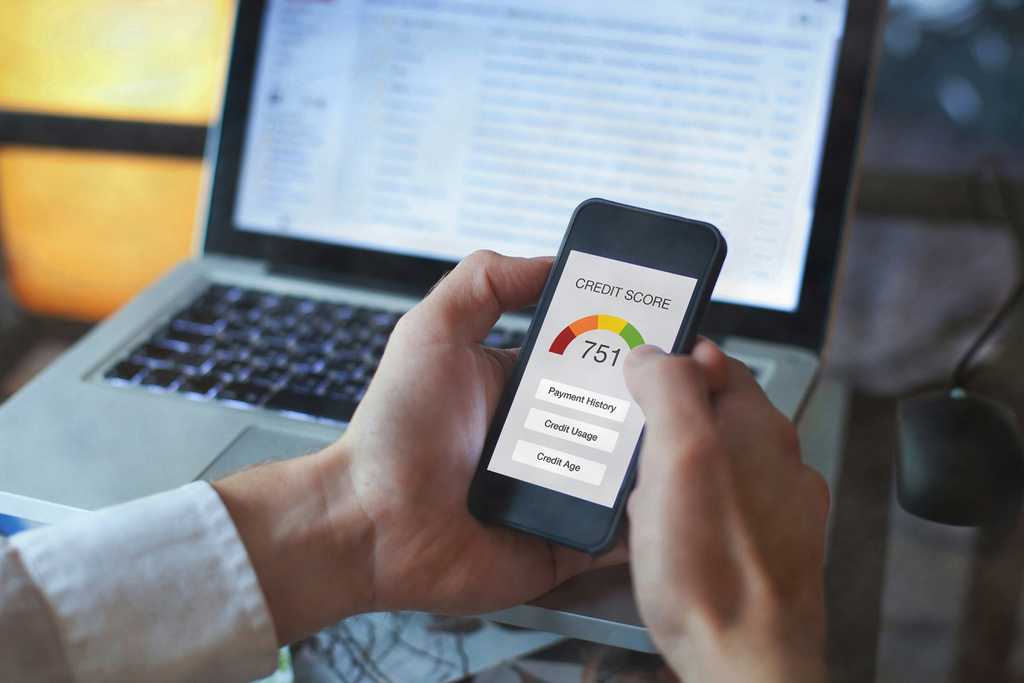A majority of Americans have a credit score, which is an indicator of your financial habits and overall creditworthiness. Things like your credit card payment history, your credit utilization, and your credit mix can all impact your credit score. Having a high credit score often comes with favorable rewards, like lower interest rates and cheaper insurance premiums.
Your credit score can change frequently, so it’s important to have a general idea of what your score is at any given time. Checking your credit score is very easy, and there are several ways you can do it. In this article, we’ll explain how you can check your credit score and debunk myths around whether checking your credit will negatively affect your score.
How to Check Your Credit Scores
There are a number of reasons why you might need to check your credit score. For example, if you are planning to apply for a mortgage or auto loan, knowing your credit score beforehand will give you a better idea of what interest rate you may receive. If you are working on improving your credit score, you might want to check periodically to see your progress.
If you want to find your current credit score, there are a few ways you can do it. The process itself is pretty simple—you may be required to input your name, birthday, and social security number and the report is instantly generated from that information.
Here are a few places where you can view your credit score or request a free credit report:
- A credit reporting agency: The three major credit bureaus in the United States are Equifax, TransUnion, and Experian. They collect your credit information when you pay off your credit card bill or open a loan. Every consumer is entitled to one free credit report per year, which you can access by visiting annualcreditreport.com.
- Your credit card company: Your credit card company also keeps a record of your credit score. However, keep in mind that most credit card companies use your FICO score to determine your creditworthiness. As a result, your FICO score may not be the exact same number as your Equifax credit score, for example.
- A credit counselor: If you are working with a professional to get out of debt or improve your financial situation, you can ask your credit counselor to give you a free credit report. Usually, credit monitoring is a key component of debt relief programs, so you should be viewing your credit report regularly to track your progress.
What Do Credit Scores Mean?
Your credit score is a reflection of your creditworthiness, which is an indicator of how likely you are to repay a loan. When you open a credit card or take out a loan, the bank will look at your credit score to determine how confident they are that you will pay back the money. Borrowers with a high credit score are the most favorable, and are typically rewarded with the lowest interest rates.
However, your credit score isn’t just used when you want to borrow money. Credit reports may also get run when you apply for a job, apply for an apartment, get a quote for insurance, or get pre-qualified for a loan. Some credit inquiries are hard inquiries (which can impact your score), while others are soft inquiries, which have no impact on your credit.
What Affects My Credit Scores?
There are a variety of factors that impact your credit score and each factor is weighed differently. The most important aspect of your credit score is your payment history. If you are consistently late on your credit card or loan payments, it will have a big impact on your credit score.
Credit bureaus also look at your credit usage to determine your score, which is the difference between your credit card balance and your credit limit. For example, let’s say you and your sister both have a $10,000 credit limit. Your balance is $8,000 and your sister’s balance is $2,000. In this case, your sister would probably have a much better credit score because her balance is lower.
Another factor that contributes to your credit score is the length of your credit history. Credit bureaus look at the average age of your accounts, the date of your newest account, and when your oldest account was opened. Because of this, teenagers and young adults often have low credit scores due to their lack of credit history.
Does Checking Your Credit Score Lower It?
It’s a common misconception that checking your own credit will have a negative impact on your score. If you request a free credit report through annualcreditreport.com or your credit card company, it’s considered a soft inquiry and will not affect your credit.
However, if a lender needs to run a hard credit check, such as when you take out an auto loan, it can have an impact on your score. A hard credit inquiry typically stays on your credit report for two years, during which time your score may lower slightly.
Bottom line
Checking your credit score is a good practice. It’s especially important before you open a new credit card or take out a loan, where your credit score will impact your interest rate. Checking your credit score is easy, and you can access a free report from annualcreditreport.com, your credit card company, or through a credit counselor. Remember that checking your own credit score won’t impact your rate, but if a lender runs a report, it can impact your score temporarily.

